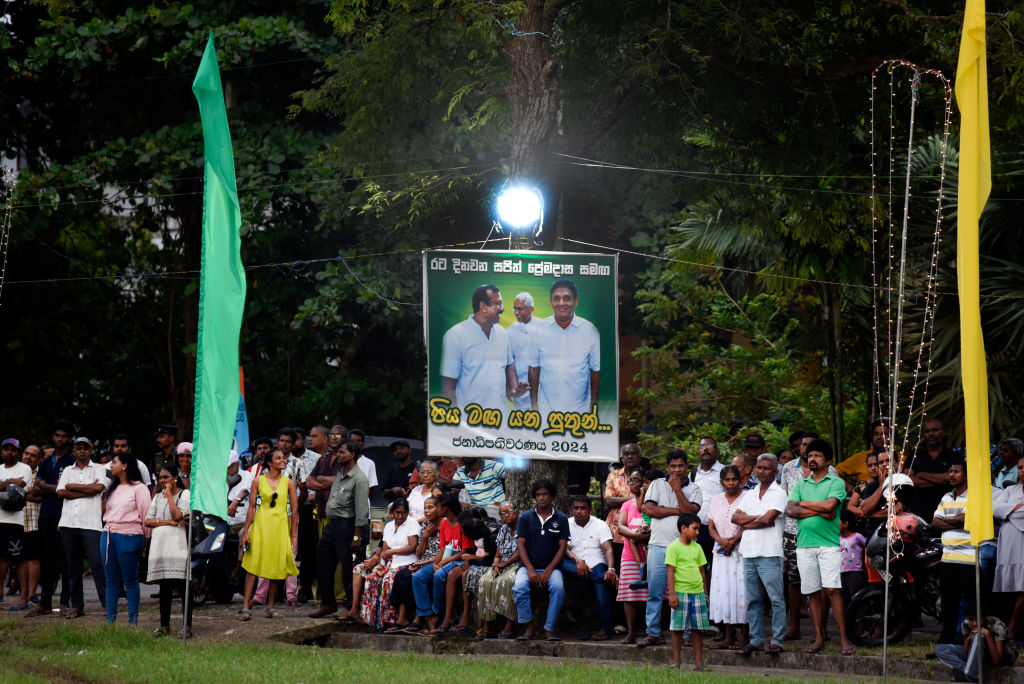Not one of the 38 contenders in Sri Lanka’s presidential election this month is a woman, a stark contrast in the Indian Ocean island where women make up more than half the voters and the workforce.
Well before more familiar figures such as Britain’s Margaret Thatcher or India’s Indira Gandhi, Sri Lanka gave the world its first female prime minister in 1960, electing Sirimavo Bandaranaike to a job her daughter also held 30 years later.
Women make up 52% of the more than 17 million Sri Lankans set to vote for a new president on Sept. 21, hoping to boost political stability and economic growth as the country grapples with its worst financial crisis in more than seven decades.
But since Sri Lanka introduced the universal franchise in 1931, the number of women in parliament has never crossed a threshold of 7%. Today, they are just 5.3% of its 225 members, and historically held only a fraction of cabinet positions.
Yet merely setting a quota of 25% among lawmakers, as was done in 2016, cannot be the only answer, said Harini Amarasuriya, a woman parliamentarian who called for a wider effort to bring more women into political life.
“The quota system is just one way,” said Amarasuriya. “It can make a numerical change, but for meaningful change there must be an effort that actively brings women into politics and gets them involved in leadership roles.”
Irrigation Minister Pavithra Devi Wanniarachchi is the lone woman in the current cabinet of 16, and there are just two women among three dozen junior ministers.
The patriarchal structure of Sri Lanka’s political parties is to blame for the sparse representation, said Nimalka Fernando of the Women’s Political Academy, which trains women to effectively participate in decision-making.
“The biggest block is men do not perceive politics as a space that should be shared equally with women,” said Fernando, whose organisation has trained about 3,000 women over the last 12 years.
“We share the house equally, but politics is outside the house,” she added. “Women are campaigners, they are in protests … but there is a block when it comes to decision-making.”
‘VERY HARD FOR WOMEN’
Handing out campaign flyers for one of the election frontrunners, opposition leader Sajith Premadasa, was Samudra Jayalath, 61, who had hoped her political career would take off after she won a municipal election in 2012.
“It’s very hard for women to make it in politics unless they come from a political family. Parties only want women to fill chairs,” added Jayalath, who never secured a national position, despite nearly four decades of working for different parties.
She dispatched party workers to hand out the signature green caps of Premadasa’s Samagi Jana Balawegaya (SJB) party in her closely-knit, middle-class Colombo neighbourhood, where she knows most of the 1,250-odd families by their first names.
Premadasa is running against President Ranil Wickremesinghe, who has steered the nation through the aftermath of the financial crisis, and Marxist-leaning parliamentarian Anura Kumara Dissanayake, among others.
Of the three main contenders, only Wickremesinghe has outlined a special effort to boost women’s representation in politics and business. Premadasa wants to improve maternity laws and roll out a national policy for daycare.
Regulations to promote women in management, private insurance schemes and modernising labour laws are among Dissanayake’s pledges.
Women’s representation in grassroots governance in Sri Lanka has never crossed 23%, despite the spur of the 2016 quota.
A similar quota designed to boost their representation at the provincial level beyond the current 5% has been gridlocked in parliament for more than two years.
The election will be Jayalath’s last before she passes on her duties as an organiser to a male colleague, ironically after failing to find a woman successor.
“You must have an inborn talent for politics,” she said. “This system will not change unless we force it to change.”
(Reuters)














